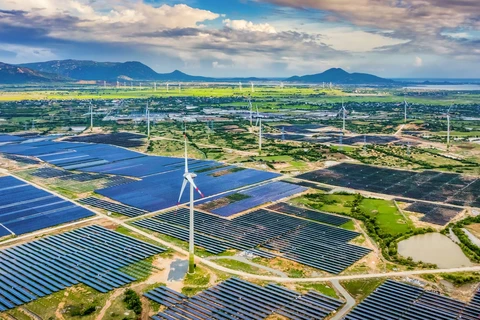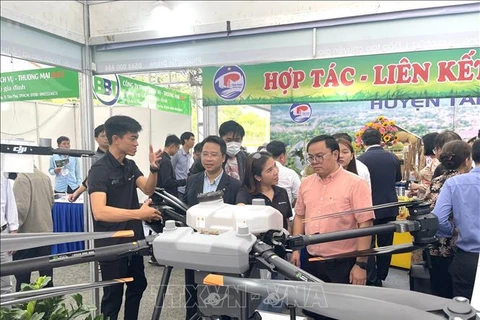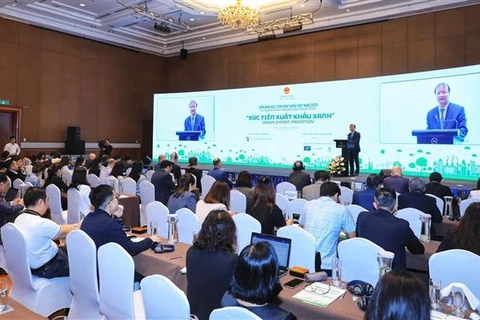 Circular economy is becoming an inevitable trend and taking place strongly in many countries around the world, including Vietnam (Photo: VNA)
Circular economy is becoming an inevitable trend and taking place strongly in many countries around the world, including Vietnam (Photo: VNA) Hanoi (VNA) - Circular economy is becoming an inevitable trend and taking place strongly in many countries around the world, including Vietnam, as the transition from the traditional linear economy to a circular economy is considered an effective solution, helping to maintain economic growth and development as well as minimising negative impacts on the environment.
Businesses operating in the fast-moving consumer goods industry (FMCG), including foodstuff and drink producers with such names as Nestlé and Coca Cola, are pioneering in this regard.
According to Nguyen Quang Vinh, Vice President of the Vietnam Chamber of Commerce and Industry (VCCI) and President of the Vietnam Business Council for Sustainable Development, 90% of Vietnamese FMCG companies have shifted to a circular economy model. However, 82% of them have adopted the model at a preliminary or average level.
The circular economy model helps production and processing businesses become more responsible and efficient through the development of resources, infrastructure, and new technologies while improving their competitiveness, increasing benefits from recycling activities and reduce costs related to waste discharge and resource exploitation, he said.
The adoption of the circular economy model also brings positive impacts to society in terms of management, enhancing the quality of the living environment and changing community awareness.
Vinh also pointed out that Vietnam has not issued a special policy or a national target programme on circular economy. Thus, fine-tuning institutions for the effective use of resources and environmental protection, especially for the circular economy, is very important and urgent.
Binu Jacob, General Director of Nestlé Vietnam, said that with the vision of becoming a global company with local connections and a pioneer in sustainable development, it has been making continuous efforts to carry out solutions and initiatives in all aspects, including environment, society and governance, contributing to the country's socio-economic development.
Recently, Nestlé Vietnam coordinated with the Ministry of Agriculture and Rural Development to promote regenerative agriculture practices, low-emission agriculture, climate change response and step up technology transfer, research and development, digital transformation and multi-party cooperation.
Last year, the company launched a project on sustainable coffee farming in line with the agro-forestry initiative in Vietnam to plant more than 2.3 million trees, contributing to reducing absorption and storage of about 480,000 tonnes of CO2 in the 2023 – 2027 period./.























